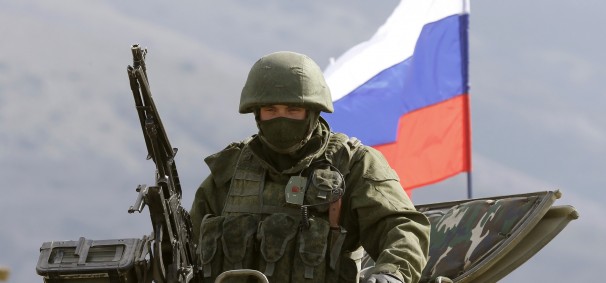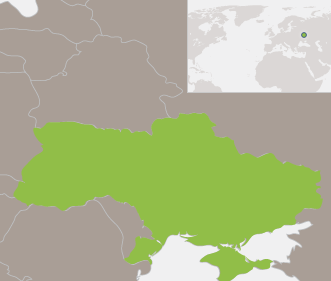The 11 February meeting in the Belarusian capital with French President Hollande, German Chancellor Merkel, Ukrainian President Poroshenko and his Russian homologue Vladimir Putin is reminiscent of an encounter that took place in Munich in September 1938.
The 1938 encounter brought together British Prime Chamberlain, French President Daladier, the Italian Il Duce Mussolini, and of course, German Chancellor Adolf Hitler. What has gone down in history as the Munich Agreement allowed for Germany’s annexation of portions of Czechoslovakia mainly inhabited by German speakers: the so-called Sudetenland. The accord was supposed to stench any further German territorial demands. Chamberlain returned to the UK amidst much talk that the agreement would secure “peace for our time.” Daladier was greeted on his return to Paris by enthusiastic crowds.
Hitler would later refer to the accord reached in Munich as “a scrap of paper.” Within a year, the mainly Slovak- and Hungarian-populated parts of Czechoslovakia had seceded, and Hitler’s army had occupied the rest of the country. On September 1, 1939, Germany invaded Poland. Two and half weeks later, the Soviet Union occupied eastern Poland, acting on a non-aggression pact signed with Germany in March 1939 - and terribly so on.
Of course, history never repeats itself exactly but it repeats itself more or less, more often than we might care to acknowledge. The personalities and the circumstances change but one or two or three generations on, the lessons of history are readily forgotten or ignored.
The Minsk meeting of February 2015 has several important parallels with the Munich encounter of September 1938. Here are three that I think are particularly relevant to the security situation in Europe and internationally.
First, Chamberlain and Daladier went to Munich with no viable military option in their pockets. Similarly, Merkel and Hollande went to Minsk without an effective security policy or capacity. Notwithstanding years of discussion of the why, how and when of European security, these two leaders projected only national perspectives. Germany is still labouring under the weight of its past in the lead-up to and during World War II. France lacks the capacity and credibility to launch any serious military initiative on behalf of Europe: at most, it can do a peace-support operation in Mali.
That said, the EU with over a half billion people has in principle no reason to fear a resurgent Russia, with much less than one-third of its population and roughly one -eighth of its GDP. Europe “just” needs to get its act together. But you have to ask whether after more than half a century of institutional tinkering, it will ever do so.
Second, the United States, in another parallel to 1938, was not privy to the Minsk parlaying. Washington professed support for the latest Hollande-Merkel effort to forge a peaceful outcome to the crisis and suggested in advance of the Minsk meeting that it was ready to provide defensive weaponry to Kiev if Moscow did not give sway. But it was not at the negotiating table. And without the US on the frontline, as the outcome of the Minsk meeting underscored, there is still no effective European security. The dilemma is that the US has presently as its default position, no more foreign adventures unless absolutely necessary and unless its allies are effectively capable and ready to step up to the plate. For the time being, they are clearly not.
Third, President Putin has understood all this all too well. He will probably not proclaim the Minsk agreement to be “a scrap of paper”. That said, I expect he senses that for the time being there is no effective Western counter to his salami tactics in Ukraine.
So, is Minsk a replica of Munich?-No, inter alia because I expect that unlike Hitler, Putin will not strive to absorb the remaining parts of free Ukraine. The other side of this coin, however, is that he has an advancing army on his hands, and the default position of an advancing army is to advance. All options are now open.
Bottom line: Poroshenko’s Ukraine has lost this battle, and may have lost its war as well. The leaders of Germany and France look foolish, just like those of the UK and France seventy-seven years ago. The EU has once again managed to put its institutional impotence on display. And the US has once more underscored its reluctance to engage after a series of less than stunning security policy forays.
Putin’s Russia has won, hands down, at least for the time being.
I expect that the next act in this unfolding tragedy will dramatise how the fate of Ukraine has been perceived elsewhere in greater Europe, and what this can mean in strategic terms for the continent as a whole.
So, no, Minsk was not Munich, but it was close enough for a cigar.






 Visit the Centre for
Visit the Centre for